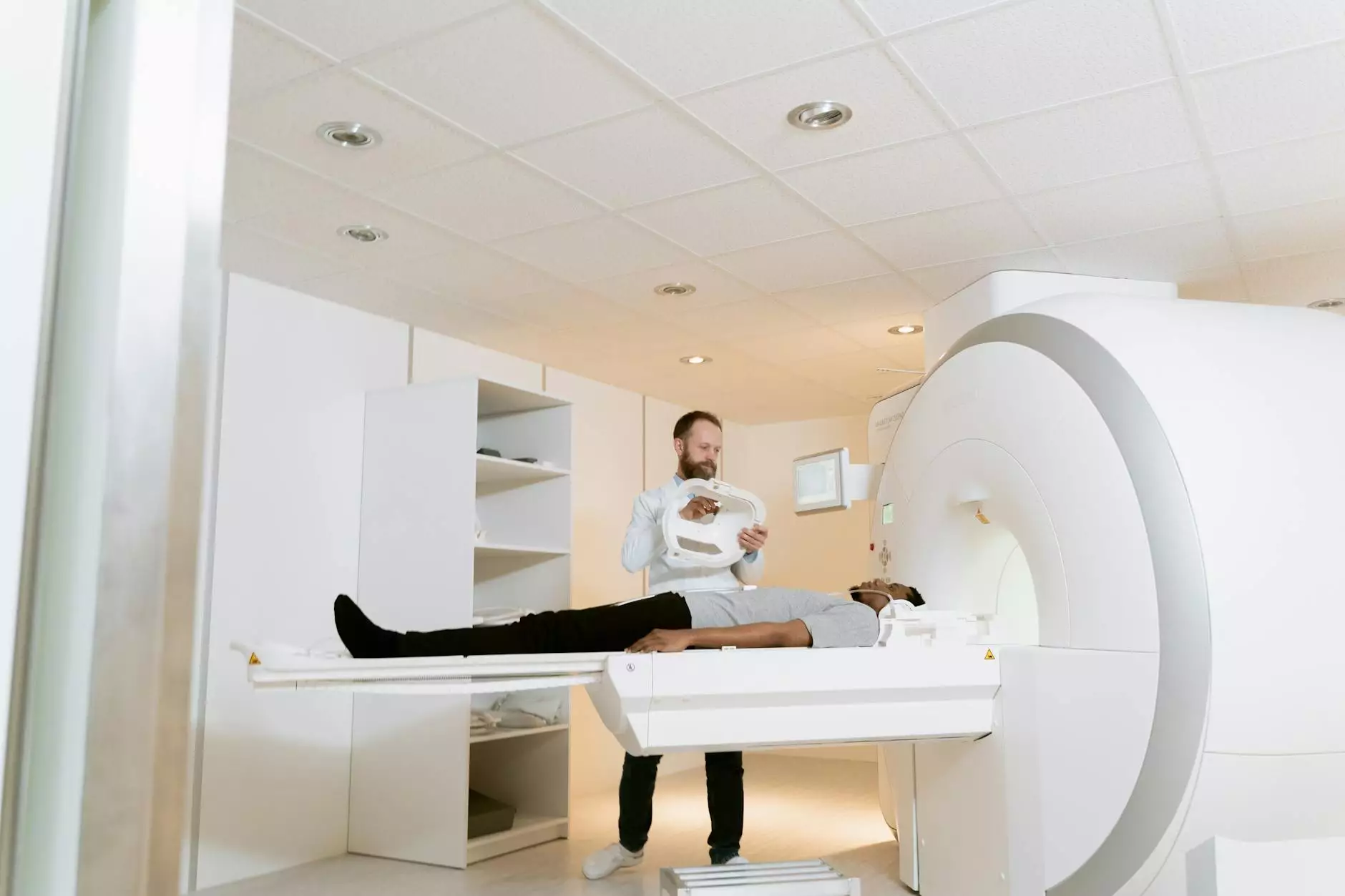Understanding MRI Equipment Service: A Comprehensive Guide

MRI equipment service plays a crucial role in the healthcare sector, particularly in diagnostic imaging. As medical centers and diagnostic services continue to evolve, the importance of maintaining and optimizing MRI machines cannot be overstated. This article delves deeply into the world of MRI equipment service, detailing its significance, components, benefits, and the best practices for ensuring reliable and accurate imaging for patients.
The Importance of MRI in Modern Healthcare
MRI (Magnetic Resonance Imaging) has revolutionized diagnostic processes in healthcare by providing detailed images of organs, tissues, and structures within the body. This non-invasive imaging technique offers unparalleled insights for diagnosing various medical conditions, from neurological disorders to musculoskeletal issues.
However, the effectiveness of MRI scans heavily relies on the proper functioning of the MRI machines. Routine maintenance and dedicated service ensure that the equipment operates optimally, minimizes downtime, and enhances patient safety. Therefore, understanding mri equipment service is essential for healthcare providers.
Components of MRI Equipment Service
Effective MRI equipment service encompasses several critical components that ensure proper functionality and safety of the machines:
1. Routine Maintenance
- Regular Inspections: Scheduled inspections help to identify potential issues before they escalate.
- Calibration: Ensures that the MRI equipment produces accurate images as per the required specifications.
- Software Updates: Keeping the software up-to-date prevents compatibility issues and enhances functionality.
2. Repairs and Troubleshooting
Even the best-maintained equipment can occasionally experience problems. Quick and effective repairs are essential to maintaining operational continuity:
- Emergency Repairs: Response teams should be ready to address any malfunctions promptly.
- Diagnostic Tools: Utilization of advanced diagnostic tools to pinpoint issues swiftly.
3. Quality Control
Quality control is an essential aspect of MRI equipment service, involving:
- Image Quality Assurance: Regular checks to maintain the clarity and accuracy of MRI scans.
- Patient Safety Protocols: Ensuring that all equipment adheres to safety standards to protect patients from radiation or equipment hazards.
Benefits of Professional MRI Equipment Service
Investing in professional mri equipment service provides numerous advantages, including:
1. Enhanced Patient Safety
Regular maintenance and timely service ensure that MRI machines operate safely, reducing the risk of accidents or complications during procedures. By adhering to safety standards, healthcare facilities can foster a safer environment for both patients and staff.
2. Improved Reliability and Efficiency
Well-maintained MRI machines have higher uptime and are less prone to unexpected failures. This reliability translates to:
- Less Downtime: Fewer disruptions in service lead to a more efficient workflow.
- Increased Patient Volume: Reliable equipment typically results in the ability to accommodate more patients.
3. Cost Savings
While professional MRI service may seem like an expense, it can lead to significant cost savings. Regular maintenance helps to:
- Prevent Major Repairs: Early identification of issues can save thousands of dollars on extensive repairs.
- Extend Equipment Lifespan: Keeping machines in good condition prolongs their operational life, leading to lower replacement costs.
4. Higher Quality Imaging
Quality control processes ensure that the MRI equipment consistently provides high-resolution images, which are critical for accurate diagnosis. This can result in:
- Better Patient Outcomes: Enhanced image quality leads to more accurate assessments and better treatment planning.
- Decreased Need for Follow-up Scans: High-quality images allow for a comprehensive evaluation, possibly reducing unnecessary additional scans.
Choosing a Reliable MRI Equipment Service Provider
Not all service providers are created equal. When selecting an MRI equipment service provider, consider the following factors:
1. Experience and Expertise
Look for a provider with a proven track record in MRI equipment service. Experienced technicians understand the intricacies of different models and can offer superior service.
2. Comprehensive Service Offerings
Choose a provider that offers a wide range of services, such as:
- Preventive Maintenance: Regular checks and balances.
- Emergency Support: Quick response times for urgent repairs.
- Technical Support: Assistance with software and hardware-related issues.
3. Customer Reviews and Testimonials
Research customer experiences through reviews and testimonials. Positive feedback can provide insight into the reliability and professionalism of the service provider.
Best Practices for MRI Equipment Maintenance
To ensure that your MRI equipment remains in optimal condition, consider implementing these best practices:
1. Create a Maintenance Schedule
Develop a routine maintenance schedule based on manufacturer recommendations and operational demands. This proactive approach can prevent issues before they arise.
2. Train Staff
Ensure that all personnel involved in operating the MRI machines receive proper training. Well-informed staff can recognize early signs of equipment trouble and act swiftly to mitigate problems.
3. Utilize Quality Parts and Supplies
When repairs are necessary, always use high-quality, compatible parts. Investing in quality components can extend the life of your MRI equipment.
4. Stay Informed About Technological Advances
The field of medical imaging is constantly evolving. Staying updated on the latest advancements, software updates, and compliance standards can help enhance the efficiency of your MRI services.
The Future of MRI Equipment Service
As technology advances, the future of mri equipment service is expected to integrate more sophisticated solutions, such as:
- Telemedicine Capabilities: Remote diagnostics and troubleshooting.
- Artificial Intelligence: AI-driven diagnostic tools may also revolutionize MRI imaging and service.
- Predictive Maintenance: Utilizing data analytics to predict equipment failures before they occur.
Conclusion
In conclusion, the realm of mri equipment service is integral to maintaining the effectiveness and reliability of MRI technology in the healthcare system. By ensuring proper maintenance, selecting the right service provider, and adhering to best practices, medical facilities can enhance patient care, optimize operations, and ensure accurate diagnostic results. The proactive investment in MRI equipment service is not merely a maintenance task; it is a fundamental component of delivering high-quality healthcare in today's medical landscape.
For those who want the best for their MRI machines, partnering with a trusted service provider like echomagnetservices.com can prove invaluable. Prioritize your MRI service—because quality healthcare starts with quality imaging.








